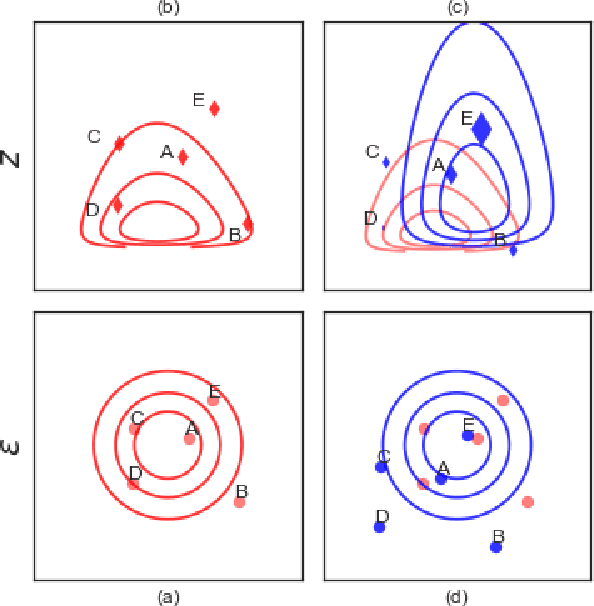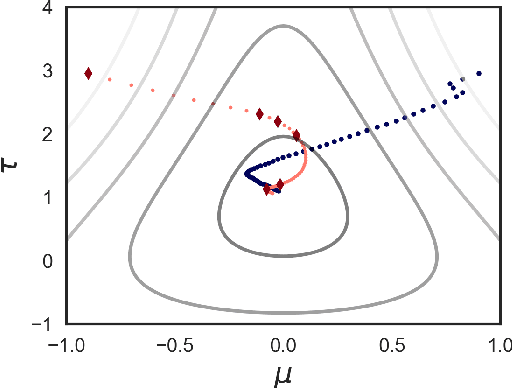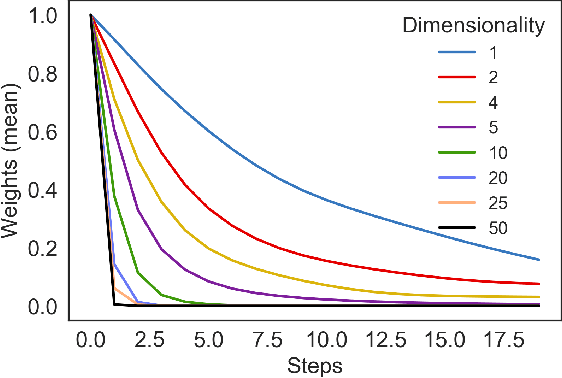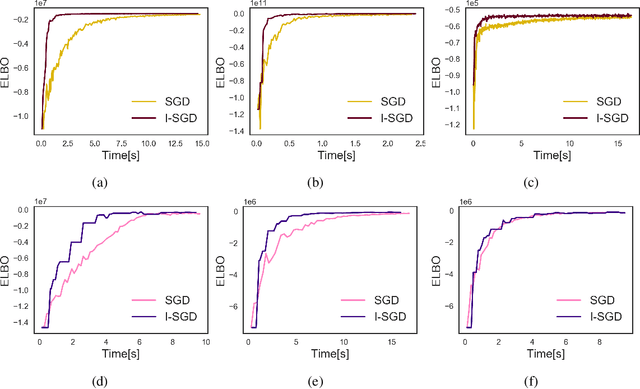Importance Sampled Stochastic Optimization for Variational Inference
Paper and Code
Jul 12, 2017



Variational inference approximates the posterior distribution of a probabilistic model with a parameterized density by maximizing a lower bound for the model evidence. Modern solutions fit a flexible approximation with stochastic gradient descent, using Monte Carlo approximation for the gradients. This enables variational inference for arbitrary differentiable probabilistic models, and consequently makes variational inference feasible for probabilistic programming languages. In this work we develop more efficient inference algorithms for the task by considering importance sampling estimates for the gradients. We show how the gradient with respect to the approximation parameters can often be evaluated efficiently without needing to re-compute gradients of the model itself, and then proceed to derive practical algorithms that use importance sampled estimates to speed up computation.We present importance sampled stochastic gradient descent that outperforms standard stochastic gradient descent by a clear margin for a range of models, and provide a justifiable variant of stochastic average gradients for variational inference.
 Add to Chrome
Add to Chrome Add to Firefox
Add to Firefox Add to Edge
Add to Edge